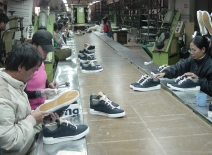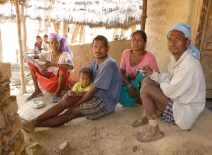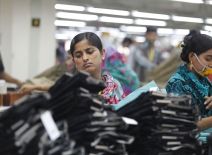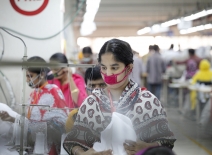
The growing attention of the international community on modern slavery, forced labour and human trafficking is welcome. Sustainable Development Goal 8.7 has helped to focus effort and has generated a lot of funding. We have seen a “frenzy of initiatives” to tackle modern slavery. But how can stakeholders collaborate more responsibly and effectively, so as to avoid duplication and confusion, and ensure that they really add value?
There is a growing acceptance that the complex phenomenon of modern slavery, forced labour and human trafficking will require mammoth collective efforts to end it. With a challenge as big as this, coordination and coherence of effort are more important than ever.
Sustainable Goal 8.7 has galvanised international bodies, national governments, parliamentarians, civil society organisations, trade unions, the private sector, researchers, the media and other actors.
But challenges remain. We need a better evidence base, so we can begin to “know” the problem – by country, sector, types of crimes being committed and quality of support for victims. We need to strengthen legislation and regulation and engage more effectively with influencers and policymakers. We need stronger structures for sharing knowledge, lessons and examples of good practice. And we need better, and more thoughtful collaboration all round. But we must guard against wealthier countries and international bodies driving the agenda without meaningful engagement and ownership by workers, governments, suppliers and other stakeholders at local and national level.
The will is there. Companies are increasingly coming together in new initiatives to tackle specific issues internationally and identify risks in their supply chains. There is a greater willingness and interest by companies, international bodies and other stakeholders to engage with policy makers in government to try to achieve a more level playing field for responsible businesses and their commercial partners. And there is recognition of the need to partner with organisations that represent the interests of workers, and with the civil society organisations that advocate for their rights.
But collaboration must be meaningful, and it must add value. One downside to the greater availability of funding has been ruthless competition and an unforgivable amount of duplication and confusion. There is no end of services being offered for due diligence analysis, training and awareness raising or specific projects to tackle specific issues.
Some see this as a lucrative source of revenue generated by companies' fear of being caught off guard and exposed. But others with genuine commitment and intent are naïve about the complexity of the problems, and are too quick to prescribe solutions that will only ever be partial and inadequate to tackle the root causes and prevent modern slavery from occurring in the long term. We need to get the balance right between urgent action on egregious unacceptable practices and quick-fix solutions that will re-occur again and again. If we don’t engage all the stakeholders together in collectively finding solutions, we will not address the issues systematically.
Everyone feels they need to be part of the effort or they will miss out on the opportunity to share their own brand of advice and support. ETI is not exempt, but we are constantly challenging ourselves to ensure we add value and raise the bar of expectation on what responsible companies should do.
There is very little evidence of what actually works to tackle complex, endemic problems of modern slavery in global supply chains. The problems of the global economy and the political factors underpinning it are at the heart of this.
But instead of chasing our tails and competing for a piece of the pie, we should be coming together to challenge the entire business model - from procurement and sourcing practices to the relationships of companies with their suppliers, outsourcing and subcontracting.
That model is reliant on cheap, exploitable labour that preys on the vulnerability, exclusion and desperation of people all the way up and down the supply chain to earn an income, almost at any cost.
Modern slavery – what helps?

Lessons on government action and what more is needed

Workers as agents of change

Transparency drives better information and corporate accountability

